Trauma can make your life screech to a halt. Your only focus might become surviving this experience, while making dinner, speaking to friends and returning to work seem like impossible tasks to navigate some time in the future.
It only makes sense for companies to provide their employees with adequate time to grieve and get their lives back after experiencing a traumatic event. But when one man returned to find that his productivity had plummeted in the eyes of corporate, he decided to share his story online. Below, you’ll find the full post that was shared on r/Antiwork, as well as some of the replies from frustrated readers.
Traumatic experiences can immediately put our lives on hold

Image credits: LightFieldStudios (not the actual photo)
But according to this man’s employer, bereavement leave is no excuse for productivity to drop
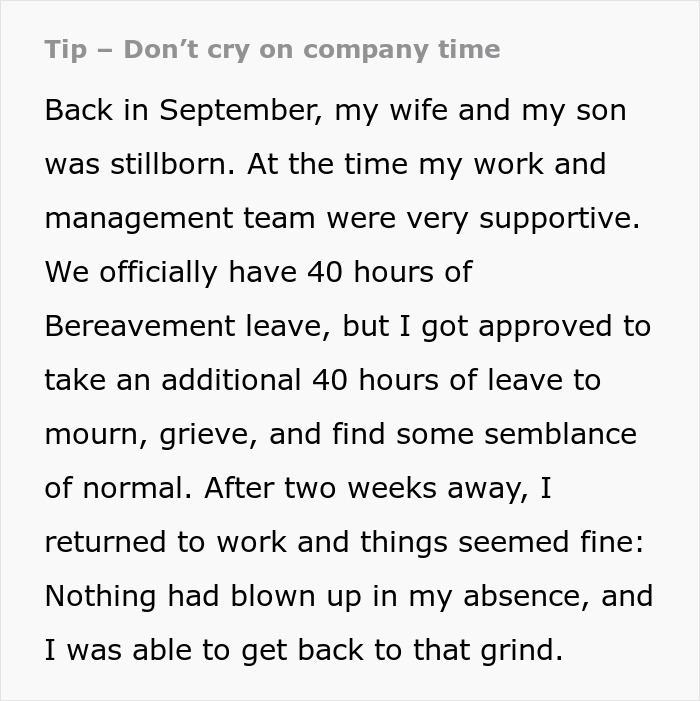
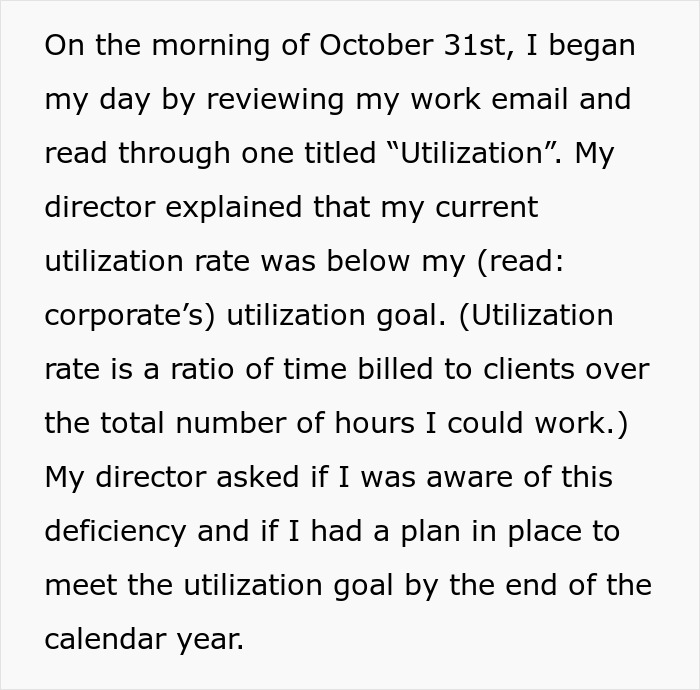
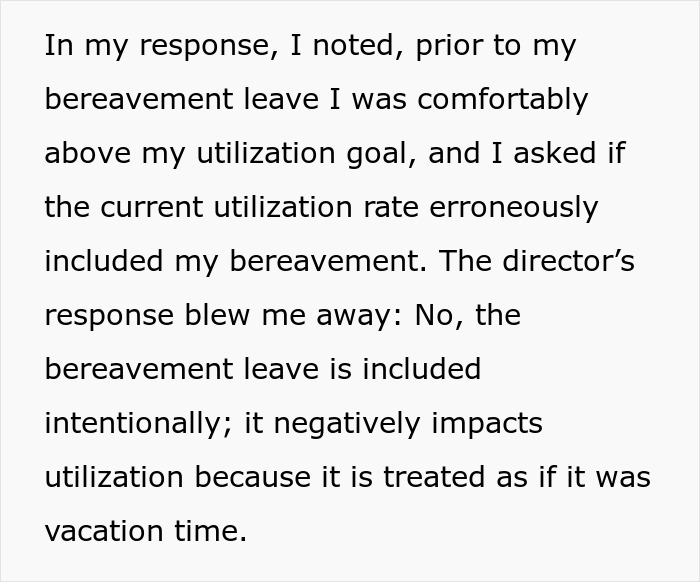
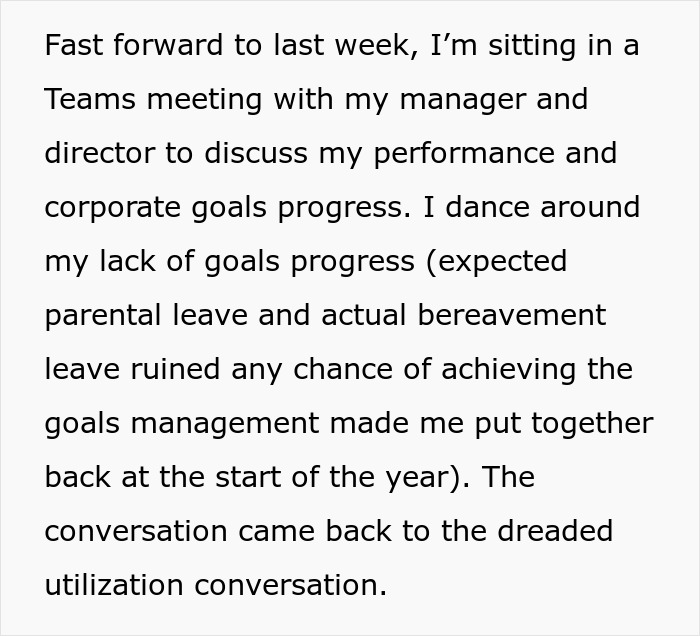

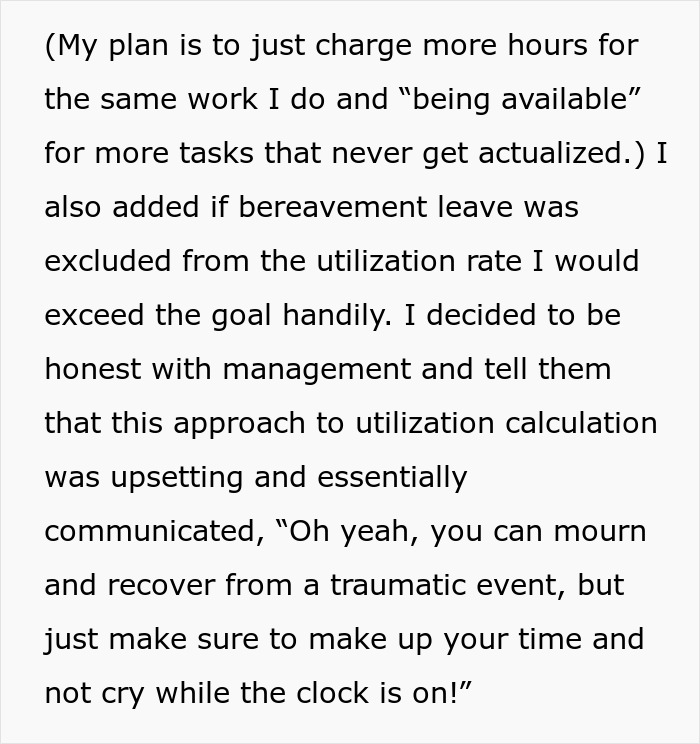
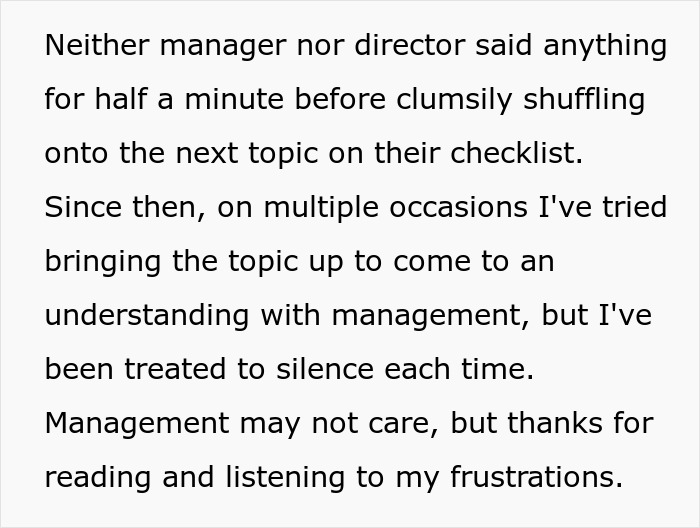
Image credits: TheThinker42

Image credits: Rodeo Project Management Software (not the actual photo)
There are no federal mandates requiring companies to provide bereavement leave in the United States
Bereavement leave, also known as compassionate leave, is one of those things that employees hope they’ll never have to use, but it can be a godsend when necessary. In the United States, there are currently no federal laws mandating that companies offer bereavement leave, but some states do have policies that entitle employees to leave if necessary.
California, Illinois, Maryland, Oregon, and Washington all provide employees with at least a few days off to mourn, and companies in other states can provide similar options if they decide to do so.
According to Business.com, it’s up to the individual companies to decide who exactly qualifies for bereavement leave, as some policies might only extend to immediate family members while others might be more broad. But the best policies seem to be flexible, providing employees with paid time off following the loss of any loved one, including a spouse, child, partner, sibling, grandparent, grandchild, or friend.
But allowing employees time off to mourn can be beneficial for both companies and workers
The average policy provides three to four days off following the loss of an immediate family member and sometimes less for extended family or friends. But in specific cases, workers may be able to negotiate longer leave with their employers. It can also be uncomfortable or awkward to require employees to provide proof that their loved one was lost, so it’s recommended to not ask for proof until they return back to work following their period of leave.
As far as why companies should provide proper compassionate leave to their workers, Mindy Cassel, co-founder of the Children’s Bereavement Center, says that it has advantages for both companies and employees.
“The benefit to the company is that of greater appreciation and loyalty by both the griever and the staff for their compassion during a critical life event,” she told Business.com. “The adjustment of the bereft employee will be enhanced by reduced stress, flexibility and social support.”

Image credits: Gadiel Lazcano (not the actual photo)
Losing a loved one, especially a child, can be an extremely traumatic experience
There’s no question that having a stillborn child is traumatic, and according to Unicef, an event like this can cause long-term psychological symptoms. Women and their partners who lose a child in this way have higher rates of depression and anxiety, and it can impact the parents’ self-esteem, outlook on life and even affect their identity.
One study including 97 women who had experienced pregnancy loss after their second trimester, the majority of whom experienced a stillbirth, found that over 40% of the women had PTSD, and nearly one third met the criteria for major depressive disorder.
Returning to work following an event like this can be incredibly challenging. In the United Kingdom, moms who lose their babies after 24 weeks of pregnancy are actually entitled to their full maternity leave, of 52 weeks, even if their child is born stillborn, and their partners are entitled to 2 weeks off.
We would love to hear your thoughts on this situation in the comments below, pandas. Have you ever had an employer who treated you like this following the loss of a loved one? Feel free to share, and then if you’re interested in reading another Bored Panda article discussing similar themes, look no further than right here.

Image credits: Tim Mossholder (not the actual photo)
Readers were appalled by the company’s actions and shared messages of support for the employee
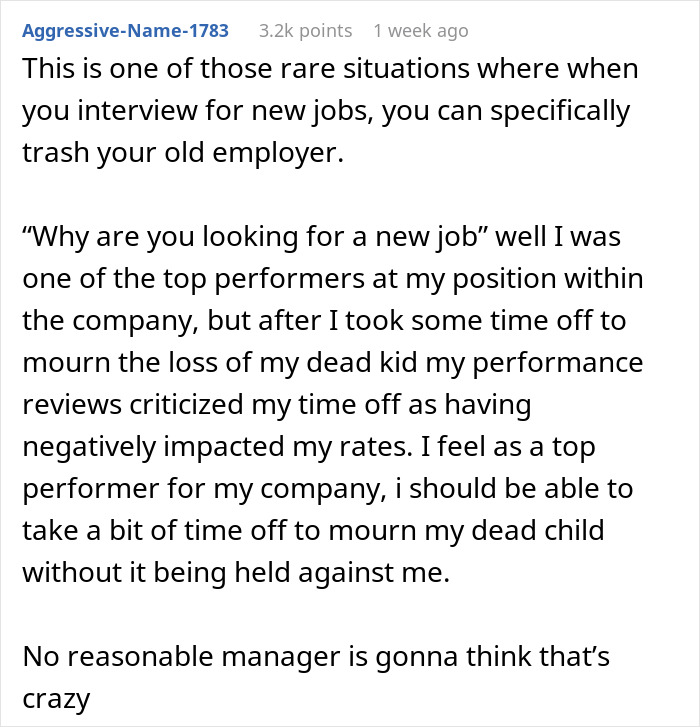


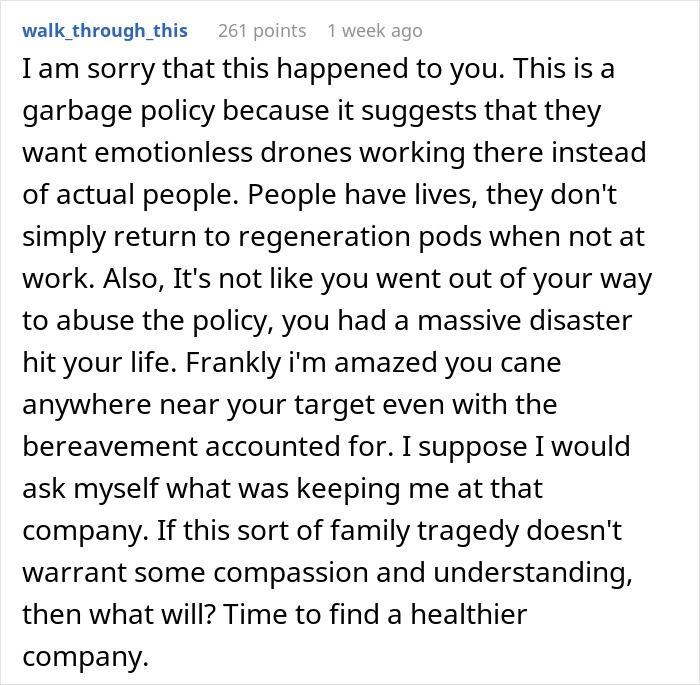







Some even had similar stories of their own to share
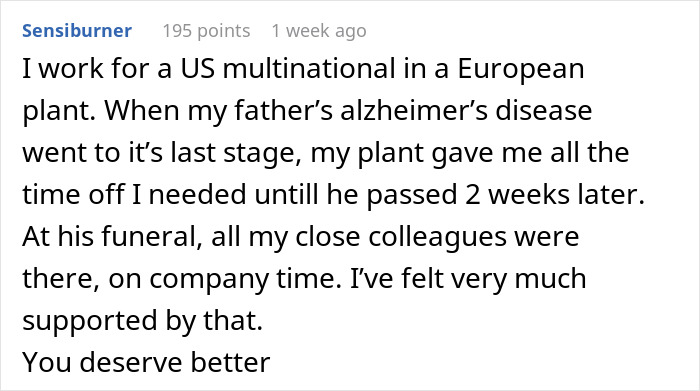
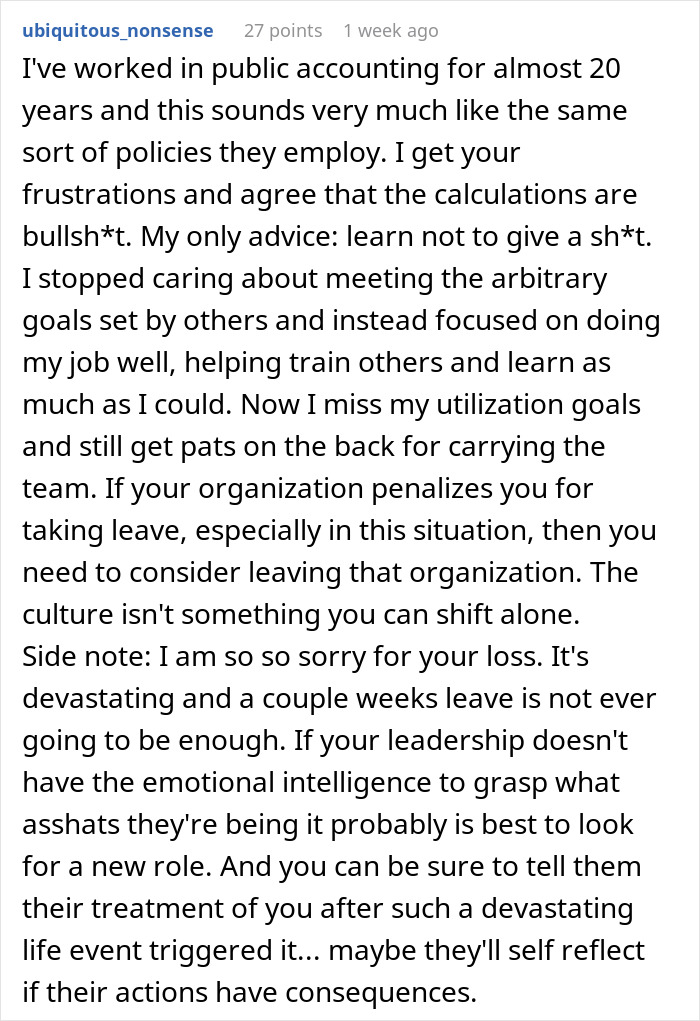












 English (US) ·
English (US) ·